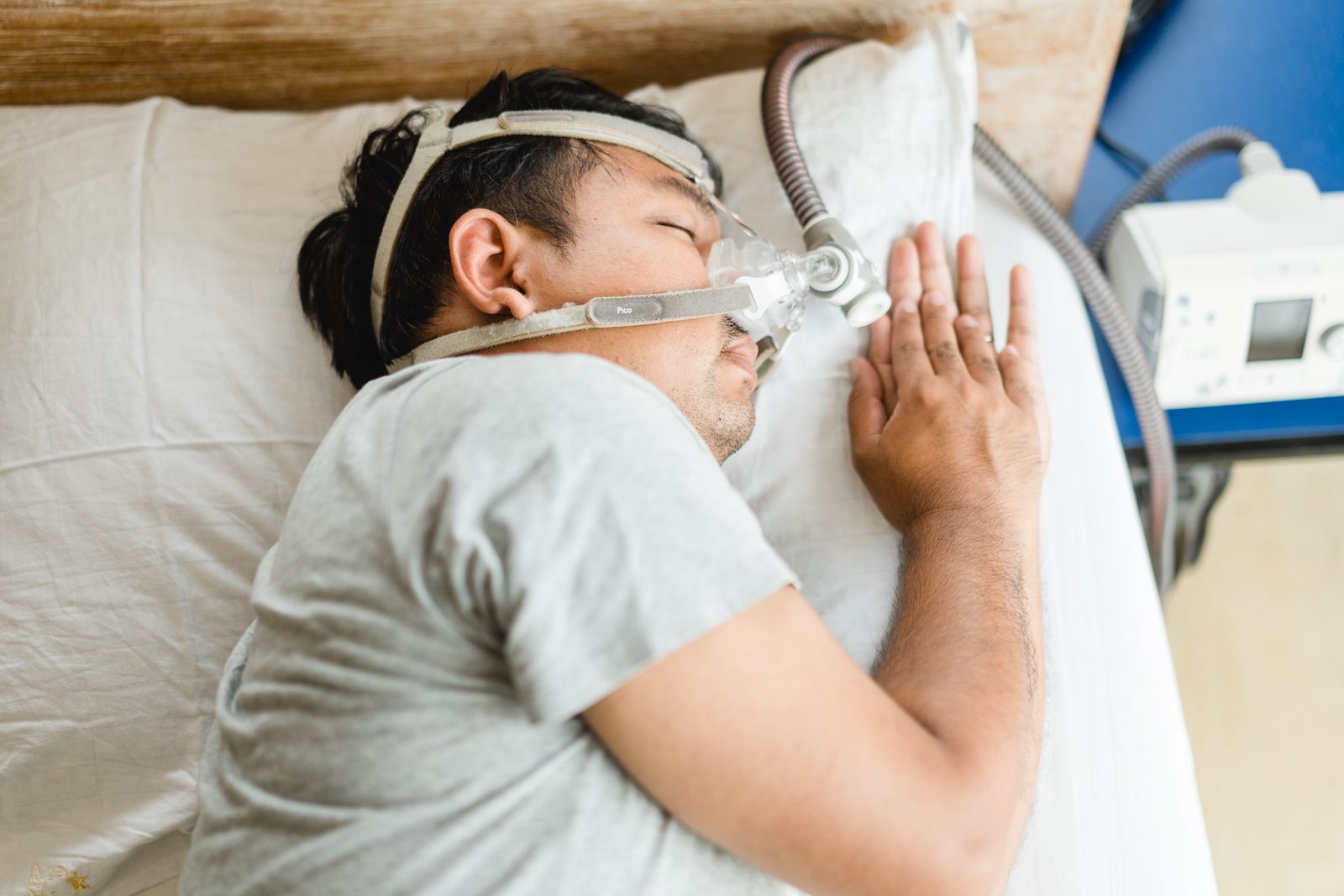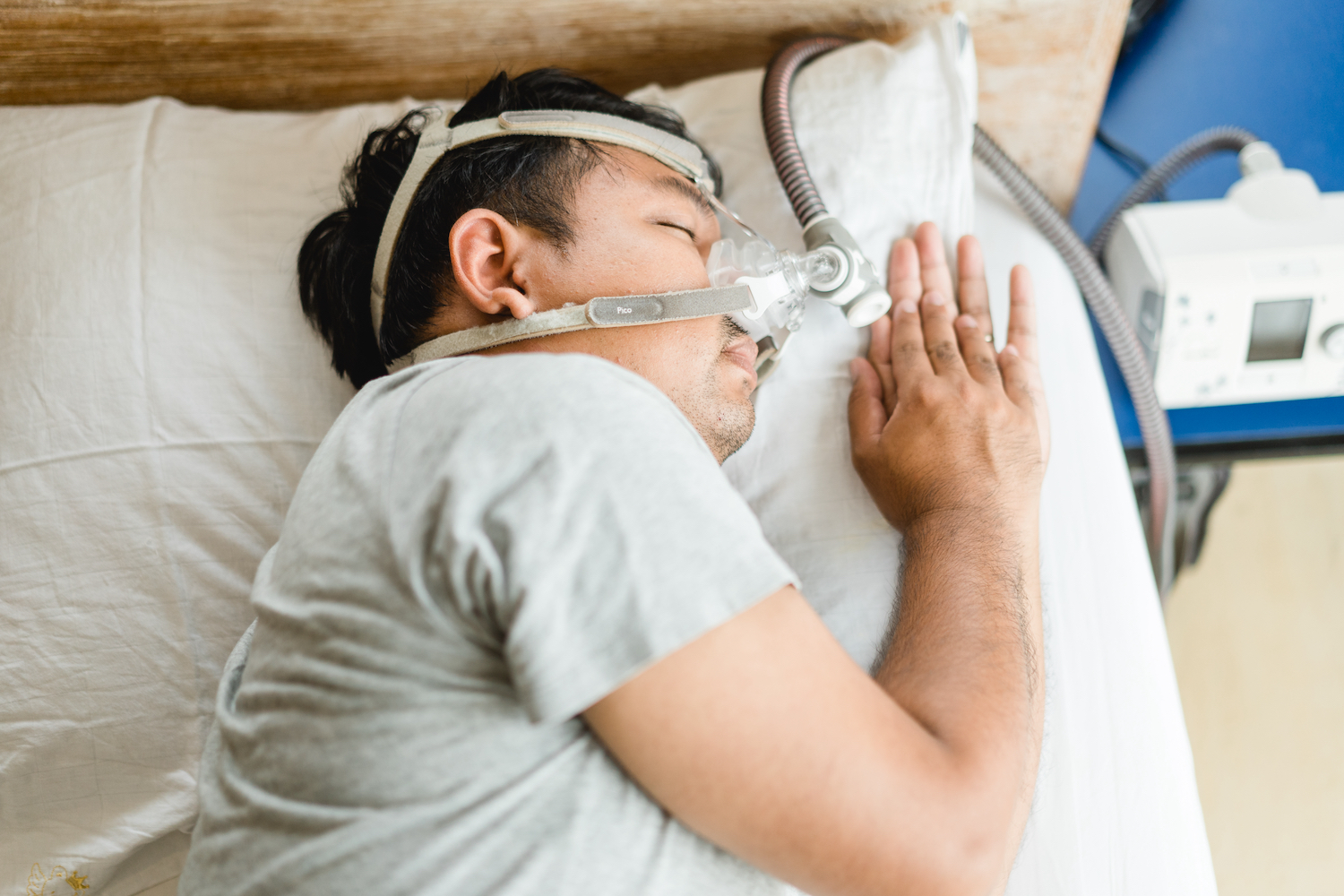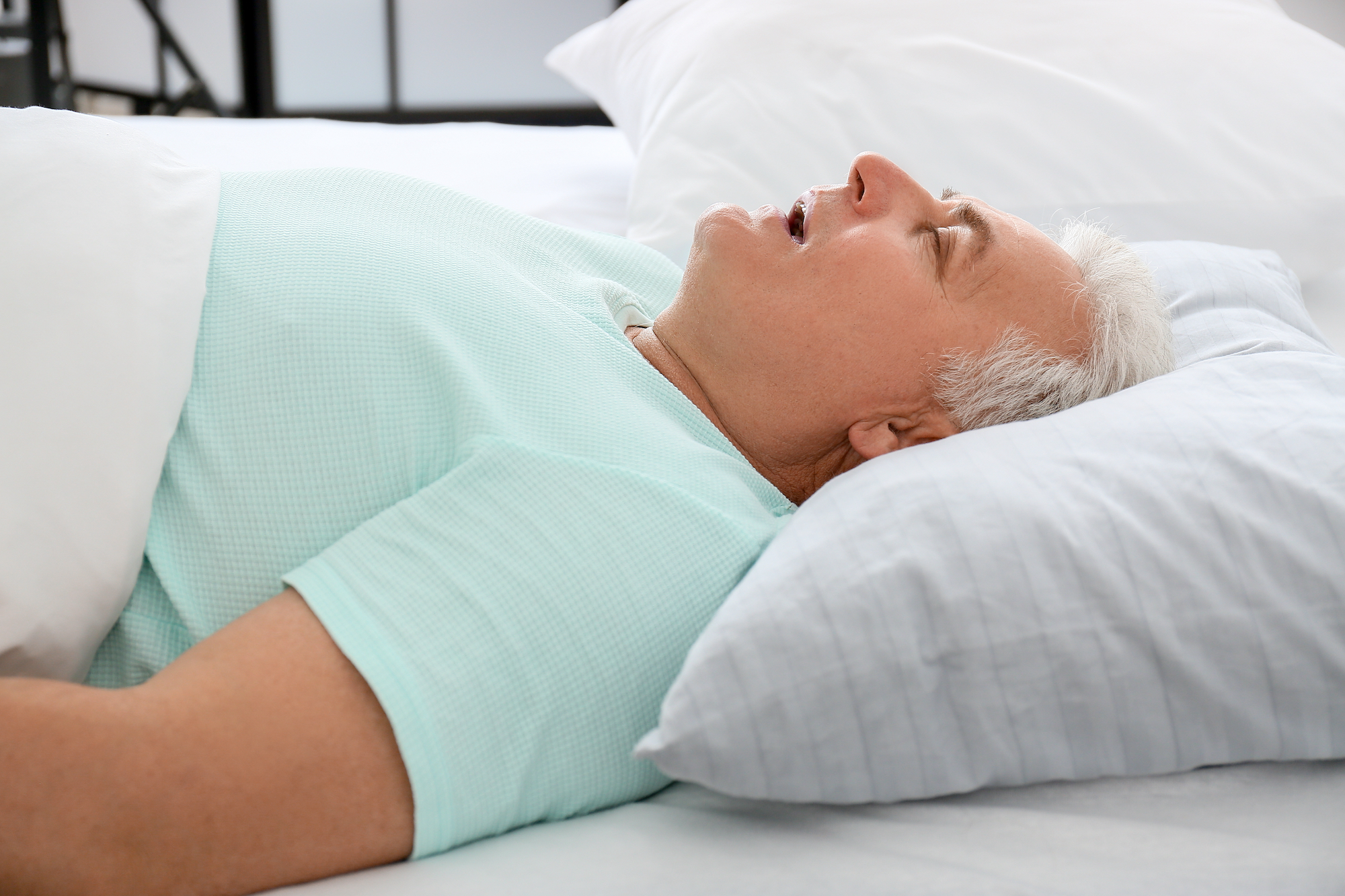If you find yourself very tired during the day and unusually winded when you exercise, you might be tempted to attribute these feelings to being out of shape, being overworked, or simply getting older. But if fatigue and difficulty catching your breath are common experiences for you, it might be worth talking to your doctor—especially if you have obstructive sleep apnea.
Feeling exhausted and having trouble breathing are two early symptoms of a serious medical condition called pulmonary hypertension. This condition affects the heart and lungs, and it is much more common among people with obstructive sleep apnea than in the general population.
What Is Pulmonary Hypertension?
People with pulmonary hypertension have high blood pressure in the vessels that carry blood from the heart to the lungs. Pulmonary hypertension happens when arteries in the lungs become thick and narrow. This makes the heart work harder to pump blood through the lungs. It also decreases oxygen levels in the blood leaving the lungs.
In its late stages, pulmonary hypertension can lead to heart failure, so if you think you might have it, it’s important to seek a diagnosis and to begin treatment as soon as possible.
Causes of Pulmonary Hypertension
Pulmonary hypertension has many possible causes. It often develops as a result of another medical condition that affects the lungs or heart, including:
- Obstructive sleep apnea
- Chronic obstructive pulmonary disease (COPD) or pulmonary fibrosis
- Blood clots in the lungs
- Heart defects
- Heart valve disease or left-sided heart failure
- Human immunodeficiency virus (HIV)
- Certain autoimmune conditions, such as rheumatoid arthritis
Pulmonary hypertension is associated with the use of some medications, including appetite suppressants. Long-term use of certain recreational drugs, such as cocaine and amphetamines, may also lead to pulmonary hypertension.
The Link Between Obstructive Sleep Apnea and Pulmonary Hypertension
Obstructive sleep apnea (OSA) is a condition in which a person’s airway repeatedly narrows or collapses while they are asleep, resulting in temporary disturbances in breathing. About 20% of people with moderate-to-severe OSA also develop pulmonary hypertension.
Both OSA and pulmonary hypertension tend to occur more frequently in older individuals and people with obesity. Additionally both are known to co-occur with heart failure and lung disease.
People with pulmonary hypertension tend to experience worse heart and lung damage if they also have moderate-to-severe OSA. Similarly, the prognosis for people with both OSA and pulmonary hypertension—in terms of their likelihood of surviving one, four, or eight years past diagnosis—is significantly worse than the prognosis for people who only have OSA.
Can Obstructive Sleep Apnea Cause Pulmonary Hypertension?
OSA can lead to pulmonary hypertension. The pauses in breathing that occur with OSA cause the blood’s oxygen levels to dip and its carbon dioxide levels to rise. In an attempt to correct this problem, the body redirects blood to areas of the lungs where it might receive more oxygen. Over the long term, this can cause the lining of blood vessels to stop functioning properly, leading to narrow arteries and high blood pressure in the lungs.
Managing Pulmonary Hypertension with Obstructive Sleep Apnea
While pulmonary hypertension has no cure, there are several treatments available that can help manage symptoms and slow its progression. Depending on the nature and severity of your pulmonary hypertension, your doctor may recommend:
- Medications
- Oxygen therapy
- Weight loss, potentially via surgery
- A lung or heart transplant
If you have both pulmonary hypertension and obstructive sleep apnea, you will also likely be prescribed continuous positive airway pressure (CPAP) therapy—the first line treatment for OSA. This therapy uses a machine to deliver pressurized air into the nostrils and/or mouth through a mask, which helps keep the upper airway from collapsing. In people with pulmonary hypertension and OSA, CPAP therapy has been shown to reduce blood pressure in the lungs.
When to See a Doctor
If you have OSA, and you are concerned about developing pulmonary hypertension, talk to your doctor. You can reduce your risk of getting pulmonary hypertension, along with other health problems, by properly managing your OSA.
OSA and PH both can cause a person to feel tired during the daytime. However, unlike OSA, pulmonary hypertension can cause:
- Difficulty breathing, especially during exertion
- Chest pain
- Dizziness
- Shortness of breath
- Swollen ankles
- A racing heart
If you have OSA, be on the lookout for these symptoms—and if you experience any of them, make sure to talk to your doctor about testing for pulmonary hypertension.


















